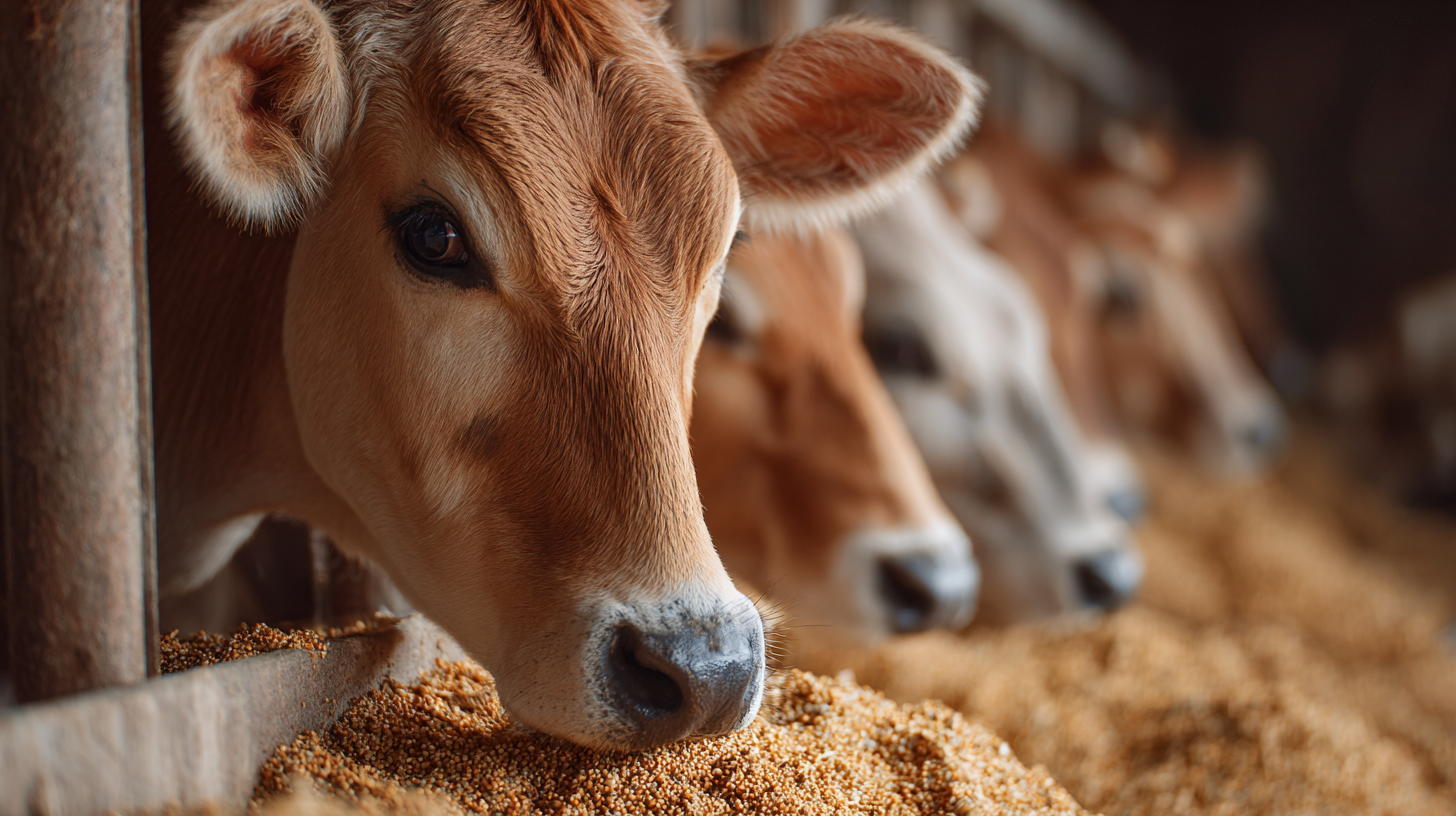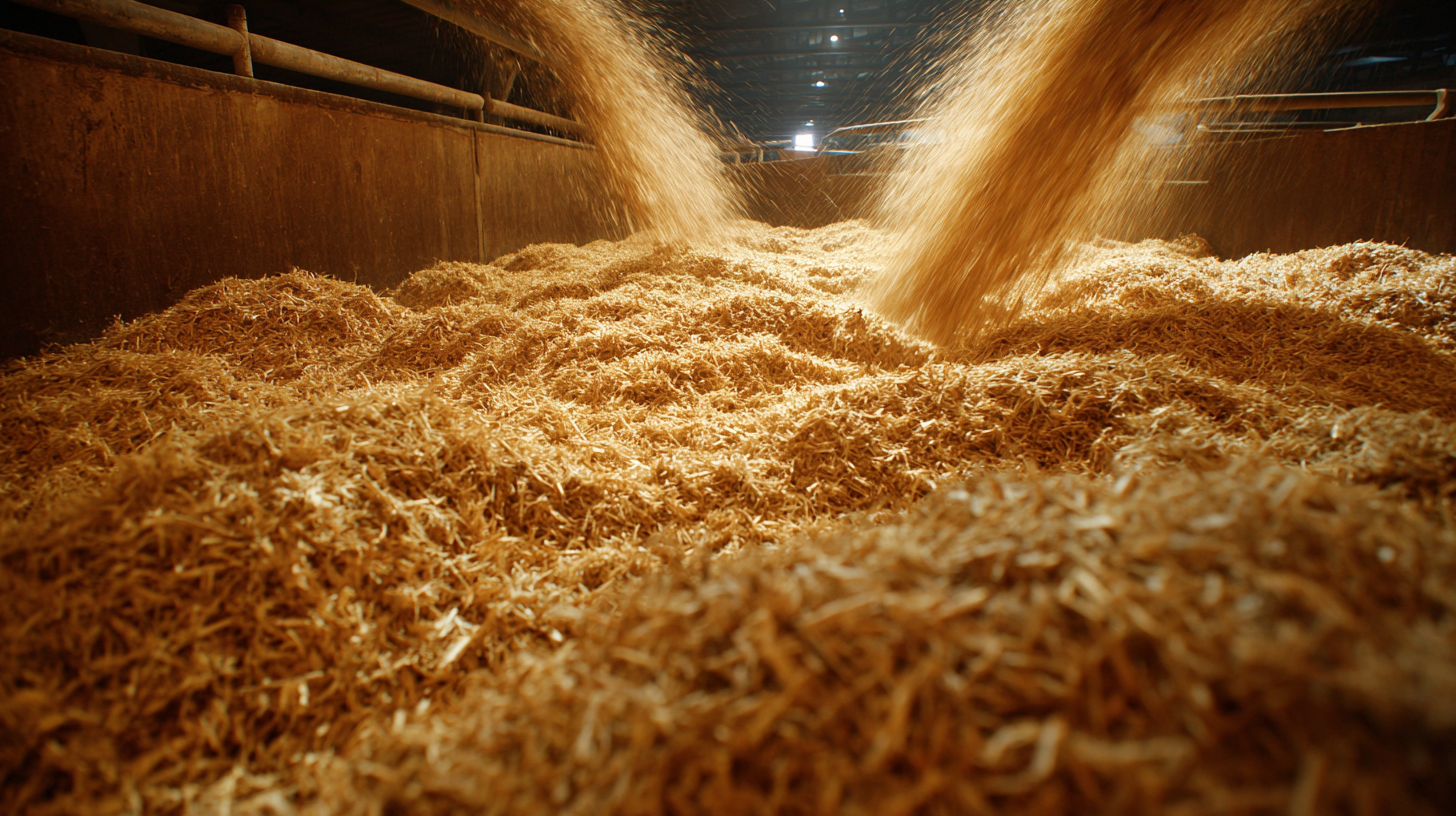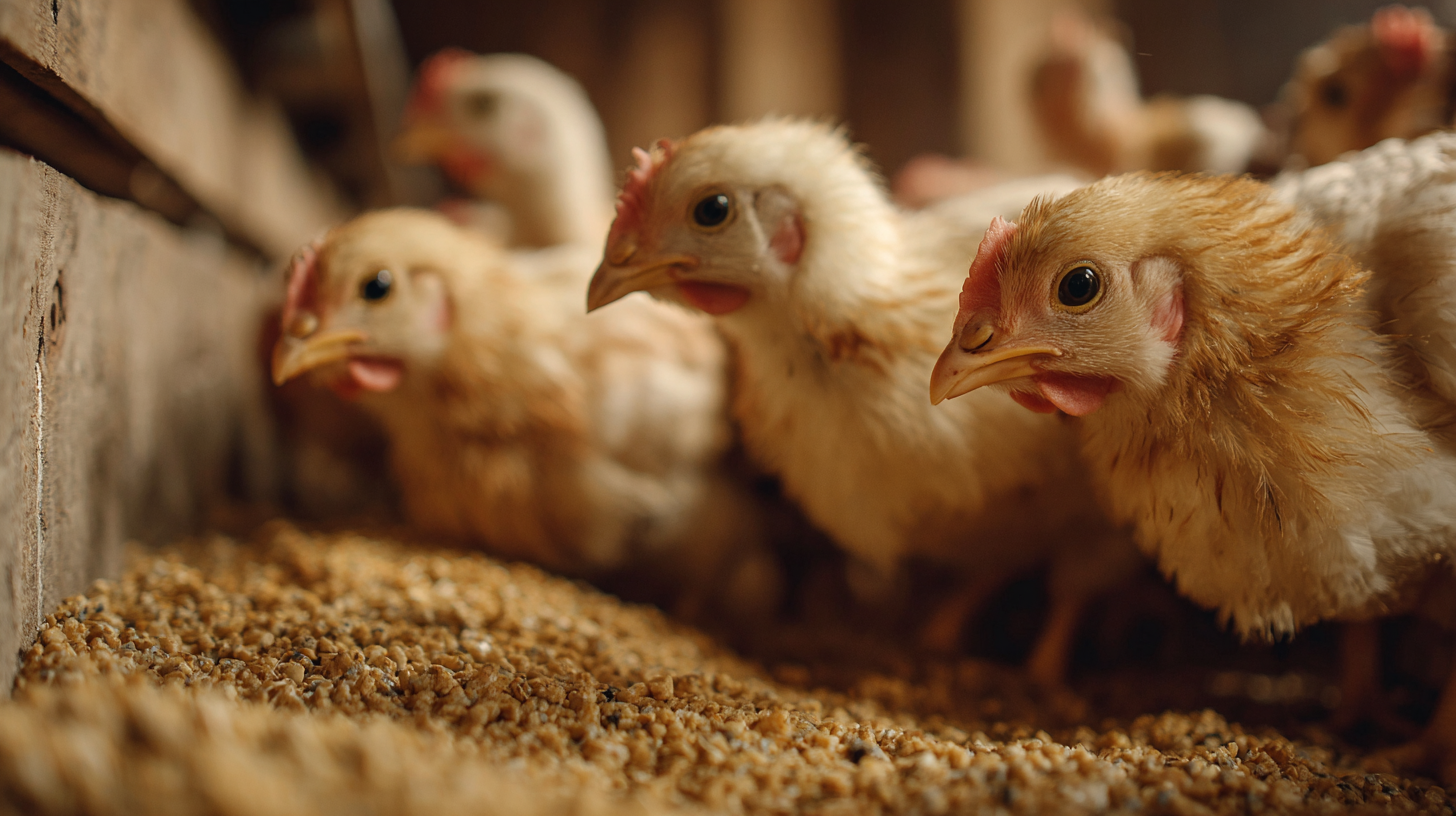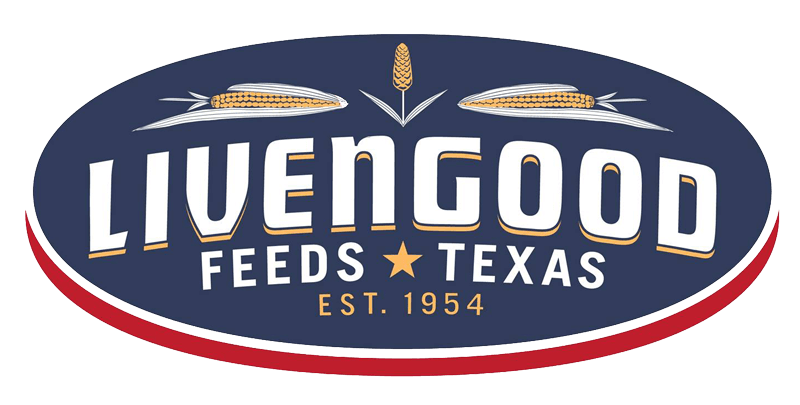The Future of Animal Feed Innovations Transforming Livestock Nutrition
The livestock industry is on the brink of a transformative era, driven by innovative advancements in animal feed that promise to enhance nutrition and sustainability. According to a recent report by the International Feed Industry Federation, the global animal feed market is projected to reach $725 billion by 2025, reflecting a compound annual growth rate (CAGR) of 4.8% from 2020. As consumer demand for high-quality animal protein surges, the need for efficient, cost-effective, and environmentally friendly feed solutions has never been more crucial. Innovations such as precision nutrition, alternative protein sources, and feed additives are not only improving the health and growth rates of livestock but also addressing the pressing concerns of food security and environmental impact. This exploration of future animal feed innovations highlights how these advancements are set to redefine livestock nutrition and contribute to a more sustainable agricultural landscape.

Emerging Trends in Animal Feed Science and Technology
Innovations in animal feed science are reshaping livestock nutrition, making it more efficient and sustainable. Recently, there have been emerging trends focused on enhancing the nutritional value of animal feed through functional ingredients and precision nutrition techniques. This includes the use of probiotics, prebiotics, and natural extracts, which improve gut health and boost the overall well-being of livestock. Additionally, advances in feed formulation technology are allowing for more tailored nutrition plans that meet the specific needs of different animal species and production stages.
Tip: Consider integrating more natural additives like essential oils into feed formulations. These can not only enhance flavor and digestibility but also improve animal health by reducing stress and promoting immunity.
Moreover, the rise of digital technologies in animal farming is revolutionizing how feed is managed. IoT devices and data analytics are enabling farmers to monitor livestock growth and health in real-time. This data-driven approach allows for more precise adjustments to feeding strategies, helping to optimize feed conversion ratios and minimize waste.
Tip: Utilize mobile apps or management software to track feed efficiency and livestock performance. This can help in making informed decisions and improving productivity in your feeding operations.
The Future of Animal Feed Innovations Transforming Livestock Nutrition
This chart illustrates the emerging trends in animal feed innovations, highlighting the growth in various types of feed ingredients from 2020 to 2023. The data reflects the increasing focus on alternative protein sources, prebiotics, and organic feed components.
Sustainable Ingredients: The Shift Toward Eco-Friendly Feed Solutions
The livestock feed industry is undergoing a transformative shift as sustainability takes center stage. With the global population projected to reach 9.7 billion by 2050, the demand for animal protein is expected to jump by 70%, according to a report by the Food and Agriculture Organization (FAO). To meet this surging demand without exacerbating environmental degradation, producers are increasingly turning to eco-friendly feed solutions. Ingredients such as insect meal, seaweed, and by-products from food processing are emerging as viable alternatives to traditional feed sources.

Incorporating sustainable ingredients not only reduces the carbon footprint of livestock production but also enhances feed efficiency. A study published by the Journal of Cleaner Production found that using insect protein in animal feed can reduce greenhouse gas emissions by up to 80% compared to conventional feed. Furthermore, it was reported that fermentation-derived proteins could replace up to 20% of soybean meal in animal diets, decreasing reliance on agricultural land and increasing resource efficiency. As these innovations continue to evolve, they promise to reshape livestock nutrition in a way that supports both animal health and the planet.
Nutritional Enhancements: Innovations for Improved Livestock Health
 Innovations in animal feed are paving the way for enhanced livestock nutrition and overall health. Nutritional enhancements are at the forefront of this transformation, with researchers and industry leaders focusing on developing feed formulations that address specific dietary needs of various livestock species. For instance, incorporating probiotics and prebiotics in feed has been shown to boost gut health, leading to improved digestion and nutrient absorption. This not only enhances the animals’ well-being but also contributes to more efficient feed conversion, resulting in healthier livestock and increased productivity.
Innovations in animal feed are paving the way for enhanced livestock nutrition and overall health. Nutritional enhancements are at the forefront of this transformation, with researchers and industry leaders focusing on developing feed formulations that address specific dietary needs of various livestock species. For instance, incorporating probiotics and prebiotics in feed has been shown to boost gut health, leading to improved digestion and nutrient absorption. This not only enhances the animals’ well-being but also contributes to more efficient feed conversion, resulting in healthier livestock and increased productivity.
In addition to gut health, the incorporation of novel ingredients such as algae and insects into animal feed offers promising benefits. These alternative protein sources are not only sustainable but can also provide essential nutrients that traditional feed may lack. By enriching feed with omega-3 fatty acids and antioxidants from these sources, livestock can experience reduced oxidative stress and enhanced immune responses. Such advancements in nutritional strategies are crucial for meeting the growing global demand for animal protein while ensuring that livestock is raised in a manner that prioritizes health and sustainability.
Digital Solutions in Animal Nutrition: Data-Driven Feed Management
In recent years, digital solutions have emerged as pivotal components in transforming animal nutrition, particularly through data-driven feed management. According to a report by MarketsandMarkets, the global smart agriculture market, which includes innovations in livestock feed, is expected to grow from $13.7 billion in 2020 to $22 billion by 2025, reflecting a CAGR of 10.3%. This shift towards digital integration allows farmers to monitor livestock health and optimize feed rations with unprecedented precision, leading to enhanced productivity and sustainability.
Data analytics play a critical role in developing personalized nutrition solutions tailored to the specific needs of livestock. By leveraging real-time data collected from sensors and wearables, farmers can assess various parameters, such as feed consumption patterns and growth rates. A study published in the Journal of Animal Science reveals that using data-driven feed management can improve feed efficiency by up to 18%, significantly reducing waste and lowering operational costs. As digital technologies continue to advance, they will undoubtedly pave the way for more resilient and sustainable livestock farming practices.
The Role of Biotechnology in Shaping Future Animal Diets
Biotechnology is poised to play a pivotal role in transforming animal diets, ensuring that livestock nutrition becomes more efficient, sustainable, and tailored to specific needs. By leveraging genetic engineering and microbial technologies, researchers are developing feed additives that enhance nutrient absorption and promote better health in animals. For instance, enzyme-based supplements can improve digestion, allowing livestock to utilize feed more effectively, which can reduce waste and lower feeding costs.
Furthermore, advances in biotechnology facilitate the creation of novel feed ingredients that are not only more nutritious but also environmentally friendly. The development of insect-based proteins and cultivated feeds from agricultural byproducts exemplifies this shift towards sustainable practices. These innovations can significantly decrease the reliance on traditional grain-based feed, alleviating pressure on natural resources. As the livestock industry continues to embrace biotechnological advancements, the future of animal nutrition will likely see optimized diets that promote animal welfare while addressing the growing global food demand.
The Future of Animal Feed Innovations Transforming Livestock Nutrition
| Innovation Type | Description | Potential Benefits | Current Research Focus |
|---|---|---|---|
| Precision Nutrition | Tailoring diets based on individual animal needs using data analytics. | Improved feed efficiency and animal health, reduced waste. | Integration of IoT devices for monitoring animal health. |
| Alternative Protein Sources | Using insect meal, algae, and plant proteins to reduce reliance on traditional feed. | Sustainable feeding practices, lower environmental impact. | Efficiency and safety of novel protein sources. |
| Genetic Modifications | Developing crops that have enhanced nutritional profiles for animal feed. | Higher nutrient availability and reduced feed costs. | Regulatory frameworks for GMO feed products. |
| Microbial Additives | Using probiotics and enzymes to improve gut health and nutrient absorption. | Increased productivity and reduced need for antibiotics. | Efficacy of specific microbial strains in livestock. |
| Functional Feeds | Formulating feeds with added nutrients and health benefits. | Enhanced immunity and overall animal welfare. | Assessing long-term impacts on animal health. |
